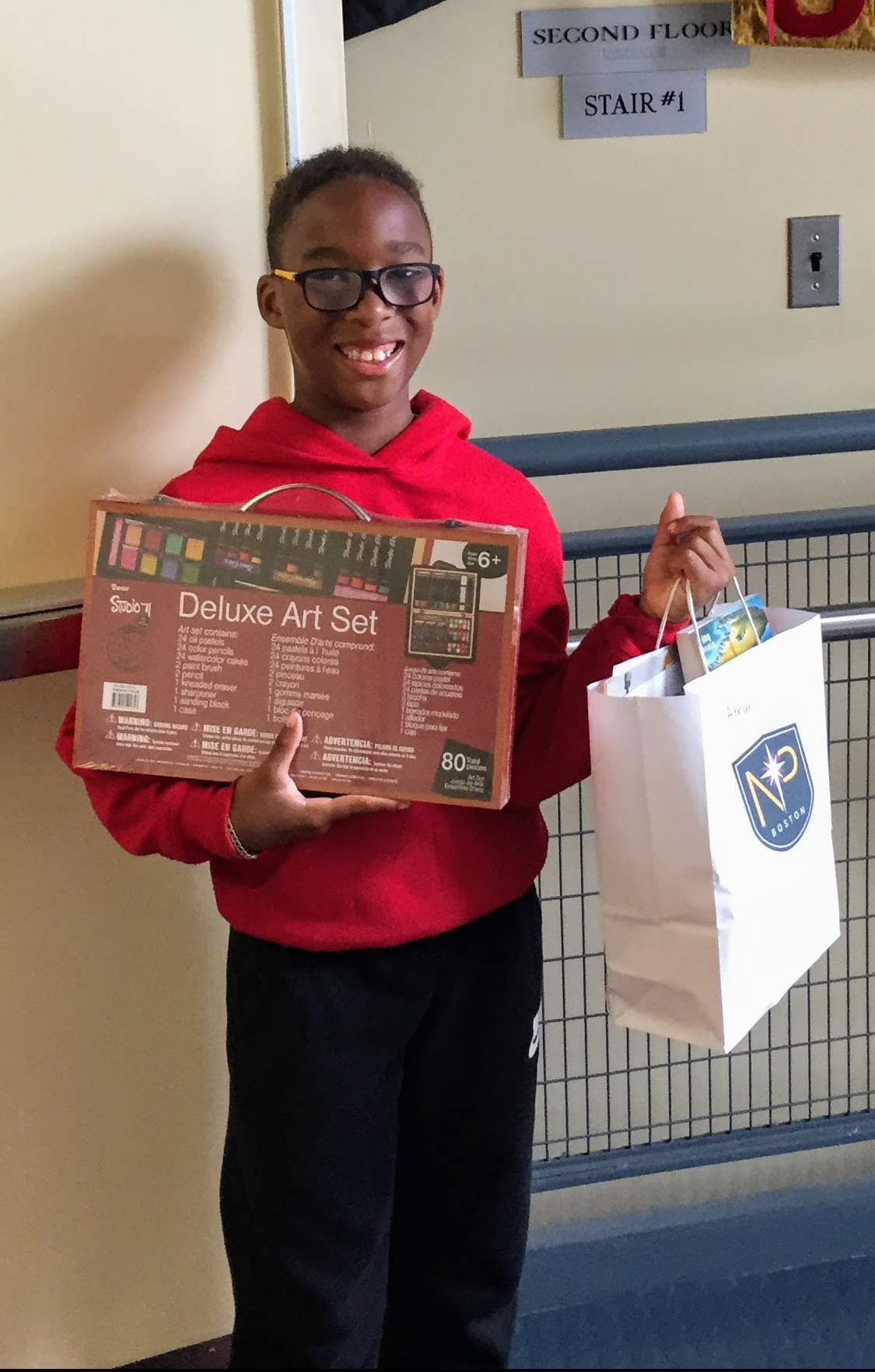At Nativity Prep, each month of adjusting and responding to the COVID-19 pandemic has included unique problems, challenges, opportunities, and solutions. Throughout these challenging months though, one theme has remained the same – our mission to truly serve and empower our students has called us to go “above and beyond” the work of a traditional school. To truly fulfill our educational mission, we have also needed to meet our “community mission.”
The negative impacts of the COVID-19 pandemic on students from low-income families are in many ways doubled. Not only are under-resourced students less likely to receive quality remote or hybrid education models during this time, but they are also more likely to experience increased challenges in their home environment. As noted in several reports, COVID-19 has had a disproportionate economic and health impact on low-income families and communities of color.
Meeting the holistic needs of our students to maintain and strengthen their educational growth in these times therefore is not just based in mission, but in reality. Our current “investment” in our students would be ineffective if it was not updated to address broader family needs.
Here are some of the challenges we’ve faced, lessons we’ve learned, and initiatives we’ve undertaken in the last few months with the support of our partners like the Johnson Scholarship Foundation:
Human Needs Before Learning Needs: As the state of Massachusetts came to a halt in late March, so did our families’ livelihoods. Service jobs in industries like hospitality and restaurants disappeared instantly. Other families needed to give up or drop jobs in healthcare or public transportation because of the health risks to elderly or at-risk family members at home. Being a small, tight-knit school community, we started to quickly hear about struggles to buy enough groceries, pay rent, or meet healthcare needs.
We needed to ask, “How can we expect our students to be able to focus on learning or our families to help with remote education at home if they are worried about groceries or a roof over their head?” Working with our community of supporters, we were able to raise resources for a Nativity Family Aid Fund to specifically meet core family needs. Both our supporters and our families know that this Fund is not a long-term sustainable option, but they also recognize that this support during a crisis is what makes sustaining our education for our students possible.
Empower Families to be Educators: With the school year ending in June and not being able to operate our usual Summer Program in July, we recognized that summer learning loss could be particularly acute and problematic this year. Nativity families wanted to keep up their sons’ educational growth, as well as find enriching and meaningful activities to keep them engaged since many summer programs were cancelled or travel options too expensive.
The lesson here was to empower families to be the educators that we know they are. Nativity provided “Summer Learning Packages” to all of our students, which included academic resources like summer reading books and math packets, but also enriching activities like a math-based card game, a robot engineering kit, a youth journaling guide, a drawing and sketch set, and home exercise gear (jump-ropes were very popular!).
Being Realistic About Technology: One of the hot topics in education equity discussions today is unequal access to learning technology. Nativity has invested heavily in providing students and faculty with the technology that they need to be successful in today’s environment, whether learning remotely in a pandemic or in normal times. Our COVID experience though has demonstrated that “technology” is not an end-all, be-all. Just providing a student with a Chromebook does not ensure that they will be able to use that technology effectively for learning.
One of the issues that we encountered while back in a hybrid-learning model this year is Wi-Fi quality and sound distraction. While we confirmed that all of our families have home Wi-Fi access, many have several children learning at home at a time, straining the quality. Having several children or family members at home also means that there are infinite distractions to learning. We learned from experience that just providing a (not insignificant) piece of technology like a student laptop will only be effective if you provide holistic supports. As a result, we have partnered with the Johnson Scholarship Foundation to provide T-Mobile wireless internet hotspots to 20 families with internet challenges and 75 pairs of headphones, one for each of our students.
We know that we cannot be “all things to all people” at Nativity Prep. A major lesson of this pandemic though has been that schools cannot address educational disruption alone while ignoring immense economic, health, and social disruptions. Working with thoughtful foundations like the Johnson Scholarship Foundation to meet the holistic needs of our students and families is not a form of “mission creep” or ineffective expense, but instead a way to “secure our investment” in the future of our students and their life-long success.
Gadisa Goso is the Principal of Nativity Prep Boston. A graduate of Nativity Prep, he also previously served as a Teaching Fellow, Admissions Director, and Graduate Support Director at Nativity. He returned to his alma mater as the first alumnus to serve as principal in July.




